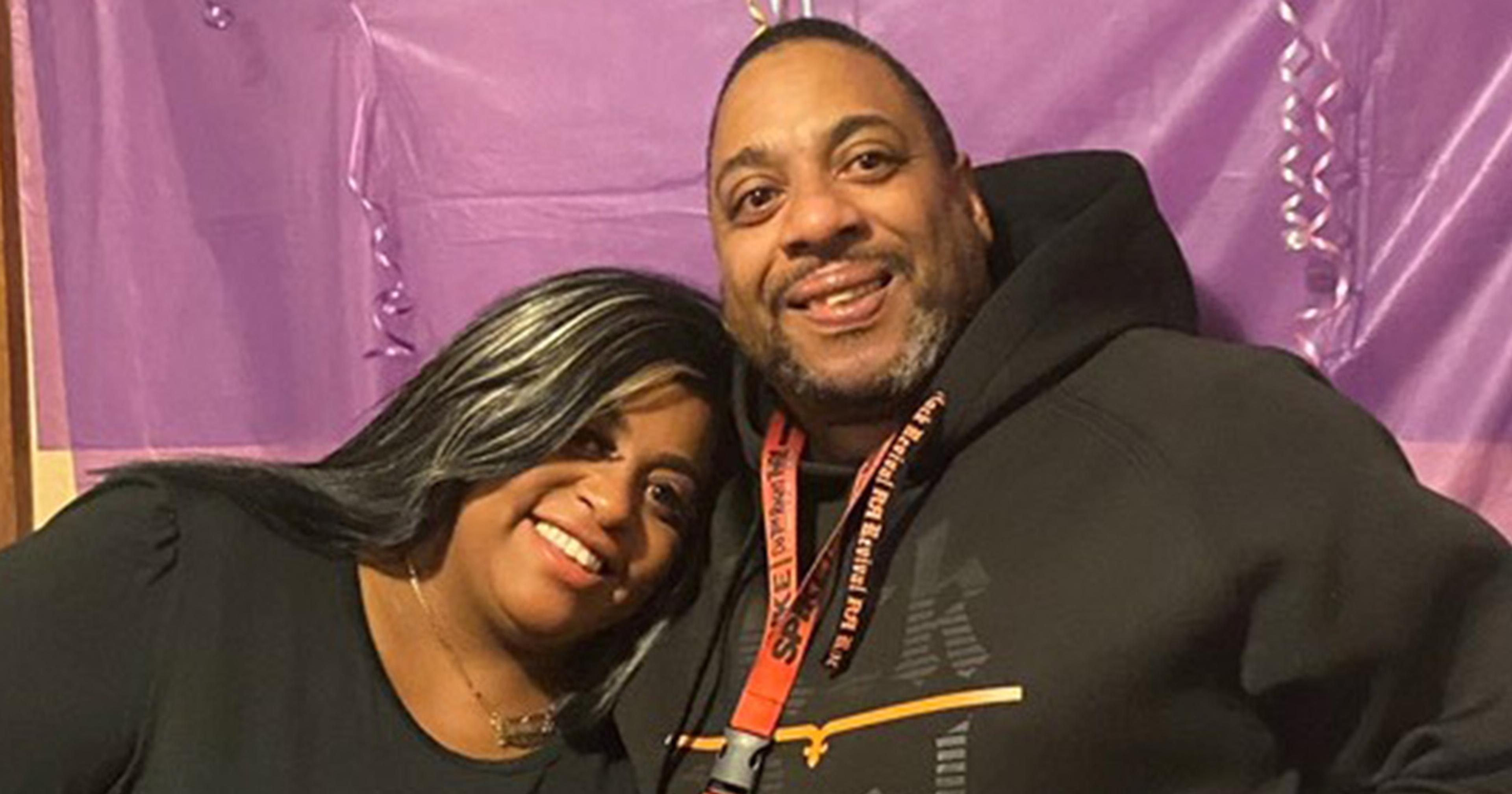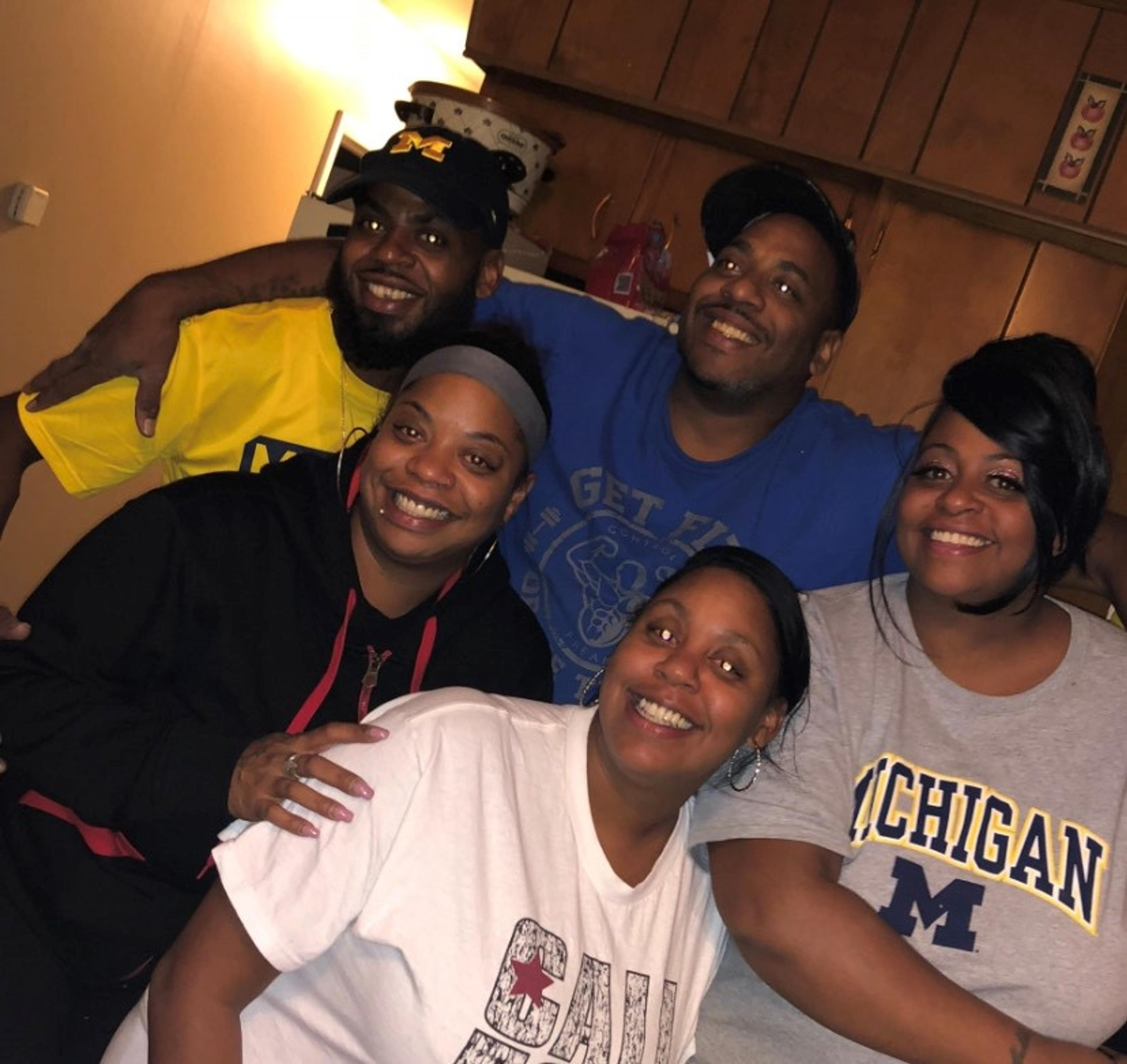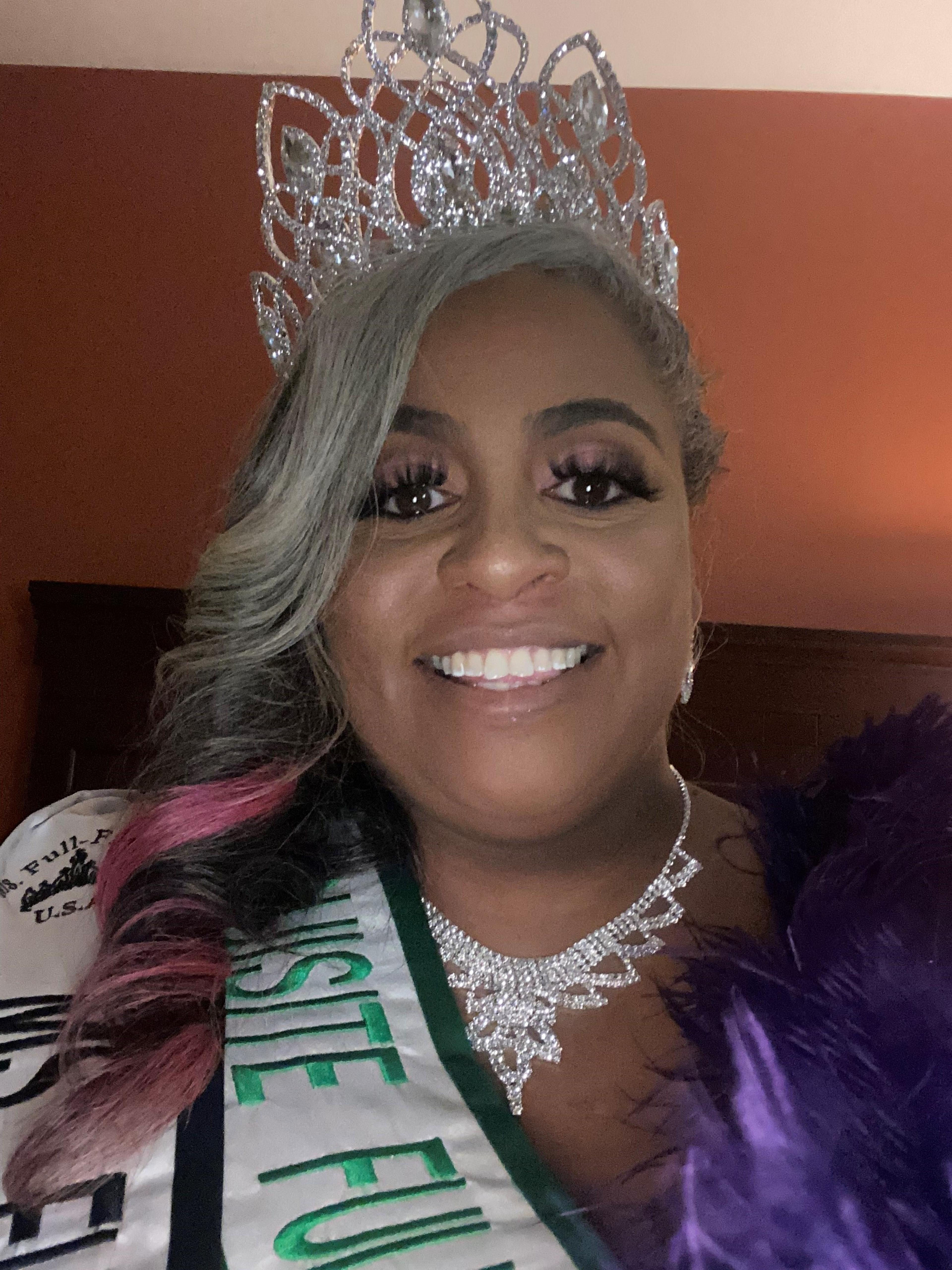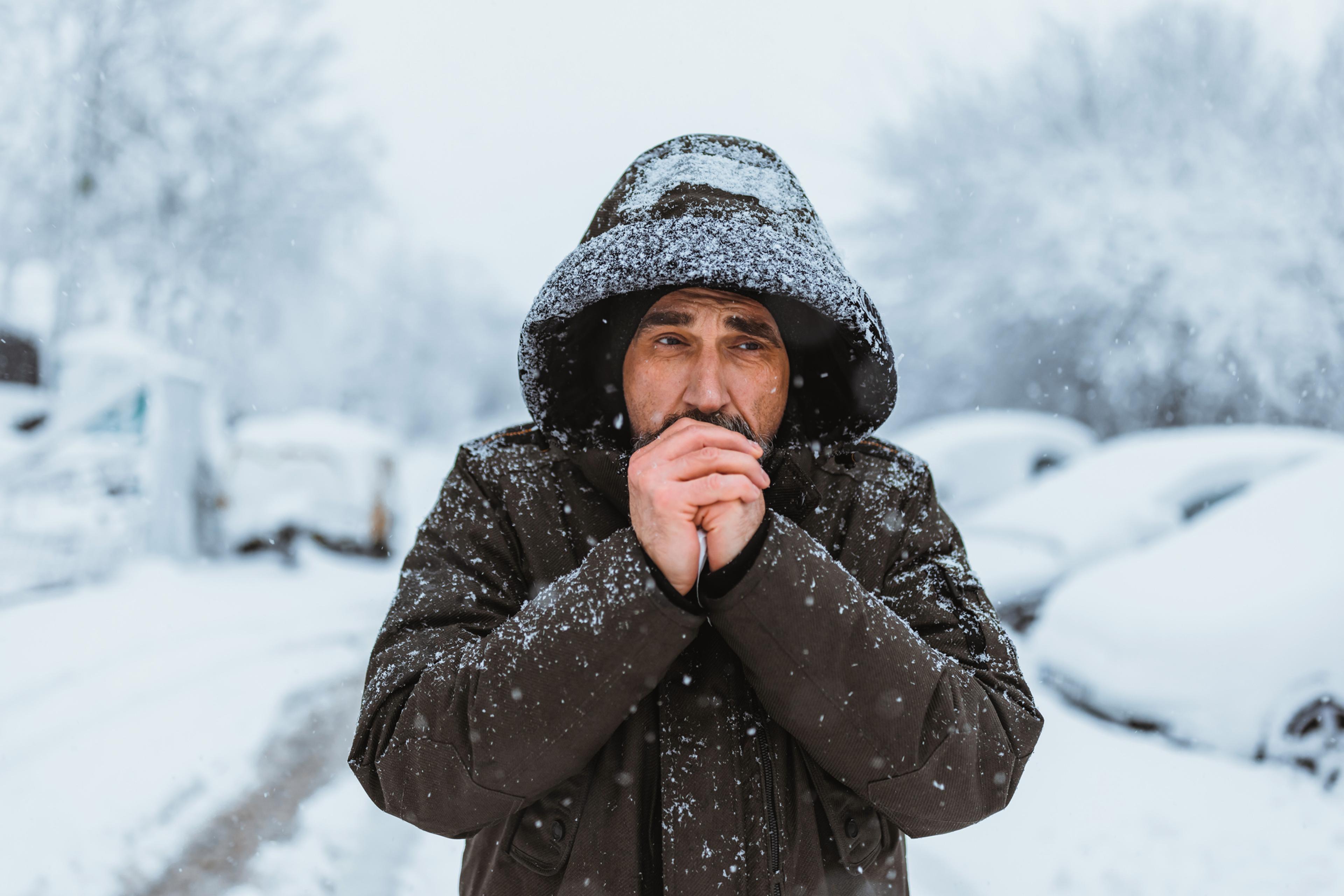‘Go Get Tested:’ Michigan Pageant Winner Uses Platform to Spread Sleep Apnea Awareness

Jake Newby
| 6 min read
Jake Newby is a brand journalist for Blue Cross Blue Shield of Michigan.

Growing up, it was “the norm” for Renee Brown to hear her older brother, Richie, snoring loudly from a few rooms away.
“It was like, ‘That’s just how Richie sleeps. He’s almost 40, he’s been sleeping like this for over 20 years,” said Renee, a Jackson, Michigan resident, during a phone interview with Blue Cross Blue Shield of Michigan. “Over 20 years he slept loudly. Me growing up with him, that was just Richie. That was nothing extra.”
They weren’t identical, or even fraternal twins, but when Renee told people they were, those folks didn’t bat an eye. Richie and Renee’s connection was as strong as that of any set of twins. They enjoyed a lot of the same music and relished spending time family and extended relatives.
“Although he was nine months older than me, our lives were so closely linked. It was like, ‘If he gets to go, I get to go,’” she said with a laugh. “We went to school together all the way up. We are the two oldest of five. We grew up like twins, basically.”
In 2019, Richie’s girlfriend pushed him to have his snoring issue investigated. Richie went in for a sleep study, which revealed a severe case of obstructive sleep apnea. Test results showed that Richie stopped breathing an average of 103 times per hour, meaning he was living with a severe case of obstructive sleep apnea (OSA).
OSA severity is based on a measurement system called the apnea-hypopnea index (AHI). AHI measures the number of breathing pauses experienced per hour during a night’s sleep. Severe OSA is diagnosed if a person experiences more than 30 stop-and-starts per night.
The sobering diagnosis spurred some immediate changes in Richie’s lifestyle. He began using a CPAP machine nightly. “He stopped smoking cigarettes. He stopped drinking alcohol,” she said. “He started wearing a CPAP (Continuous Positive Airway Pressure) mask.”
Renee said Richie weighed around 300 pounds. Several health conditions, according to the Sleep Foundation, increase the likelihood of developing sleep apnea, but OSA is most common in people who are overweight. Excess weight can affect a person’s upper airway during sleep, an airway that is already naturally relaxed. This is why snoring is one of the most common sleep apnea symptoms; air is literally being squeezed through a restricted airway, causing a loud noise. Renee was not aware if Richie attempted to lose weight after OSA diagnosis.

OSA is known to increase a person’s risk of heart failure, stroke, and coronary heart disease. One study that examined close to 11,000 subjects found that OSA was linked to a higher risk of sudden cardiac death. Other research found that patients with OSA are at more than double the risk of experiencing sudden cardiac death between 12 a.m. and 6 a.m. as those without OSA.
Renee said her brother continued with his CPAP therapy and made efforts to combat OSA until the day of his death, which was in June of 2021. He died in his sleep while on vacation in Florida.
“Richie was like the glue of our family,” Renee said. “Richie was the type of person that kept in touch with everybody. Aunties, uncles, cousins. Long-lost friends that we went to elementary school with. If he had your number or a way to contact you, he would give you a call every so often. He was that type of person.”
Richie’s death rocked the Brown family, but Renee said her brother did not die in vain. His “eye-opening” death inspired her to take better care of her own health.
“I got myself a sleep study and found out I have sleep apnea,” Renee said. “I don’t snore, so you wouldn’t have known it. There wasn’t an inkling or a thought in mind that I had it until Richie passed.”
A growing collection of research indicates significant racial disparity in sleep apnea-related mortality in the United States. The Annals of the American Thoracic Society reports that African Americans with OSA – compared to white individual –are at an increased risk for sleep apnea and severe cases of sleep apnea, and use treatment with CPAP devices less often.
As an African American woman, Renee said she believes everyone she grew up with knew someone who had sleep apnea. “The machines that they had were so loud, although it might have been helping one person sleep, it was keeping their spouse or their wives or their kids up at night,” Renee said.
A small 2013 Journal of the National Medical Association study that examined beliefs and attitudes toward OSA evaluation by Black focus groups, concluded that barriers to CPAP treatment adoption were related to the “confining nature of the device, discomfort wearing a mask while they slept, and concerns about their partner’s perceptions of treatment.”
“It felt like, ‘Well, yeah I have sleep apnea but I’m not wearing that because it’s too loud,’” Renee theorized. “Or, I’m going to just sleep sitting up, or in the living room.’”
From what she observed, Renee said she thought the African American people she knew that received CPAP treatment felt like it was a “burden” to others, and they were leery to take part in sleep studies.
“With the technology today, the machines are quiet. They’re silent you don’t even hear them,” Renee said. “The technology has also evolved, and I think that helps that notion and that feeling of it being a burden.”
Around the time of Richie’s death, Renee visited a local fashion show, which connected her with Ms. Full-Figured USA, which is considered one of the most well-established and long-standing beauty pageants that highlight women of all races, shapes, and sizes. Ms. Full-Figured Director of Michigan helped set Renee up with an audition, and about a year later, she was crowned as "Greatness Renee Brown Ms. Exquisite Full-Figured USA Michigan." The “exquisite” category is reserved for women aged 40 and up.

This honor came with a platform for Renee, who used it to spread sleep apnea awareness. She had the opportunity to speak in Atlanta during the Ms. Full-Figured USA National Pageant in 2022, where she did just that.
“When I get on stage and I talk about it, I initially start out by asking a question: ‘Everybody knows somebody who snores really loud, right?’ she said. “And then I talk about how important it is to get tested or get a loved one tested. Taking a sleep test is not hard, it does not hurt. I just try to encourage people to do what’s best for their health. Go get tested.”
If you are someone who snores and your snoring is accompanied by any of the below symptoms, consider scheduling an appointment with your primary care physician to decide whether further OSA evaluation is right for you.
- Chest pain at night
- Difficulty concentrating
- Excessive daytime sleepiness
- Gasping or choking at night
- High blood pressure and stroke
- Morning headaches
- Restless sleep
- Sore throat upon awakening
- Witnessed breathing pauses during sleep
- Your snoring is so loud it's disrupting your partner's sleep
Photo credit: Renee Brown





